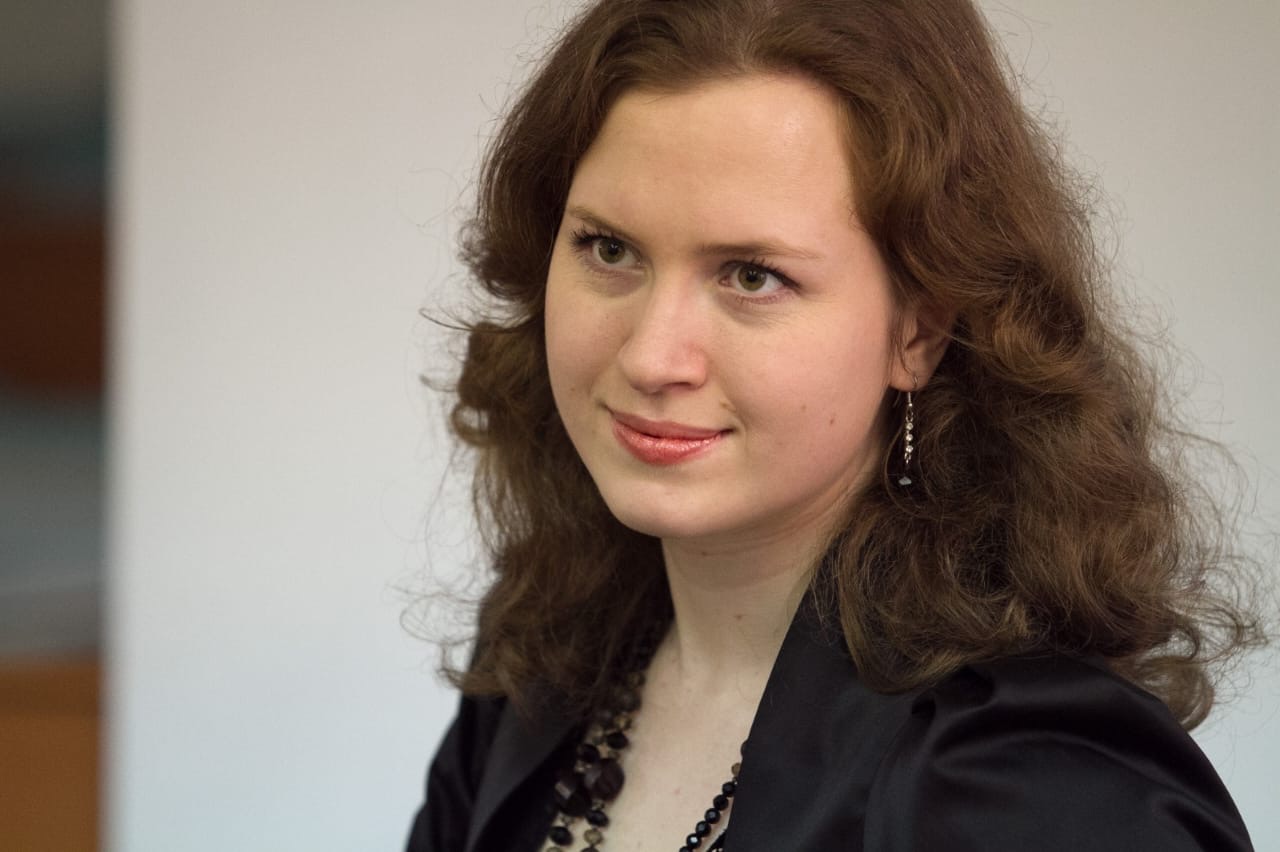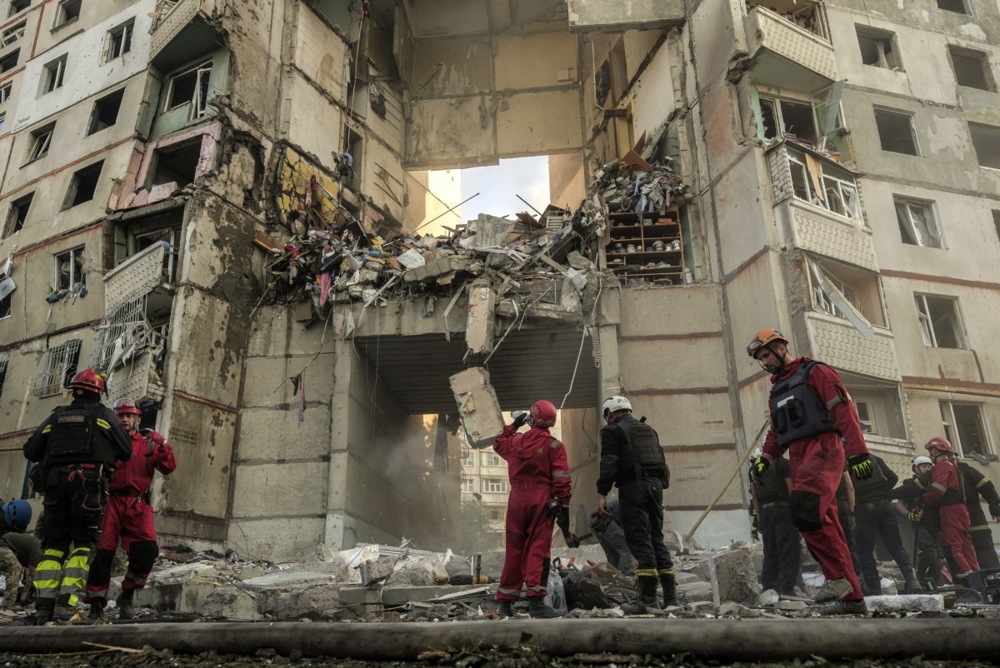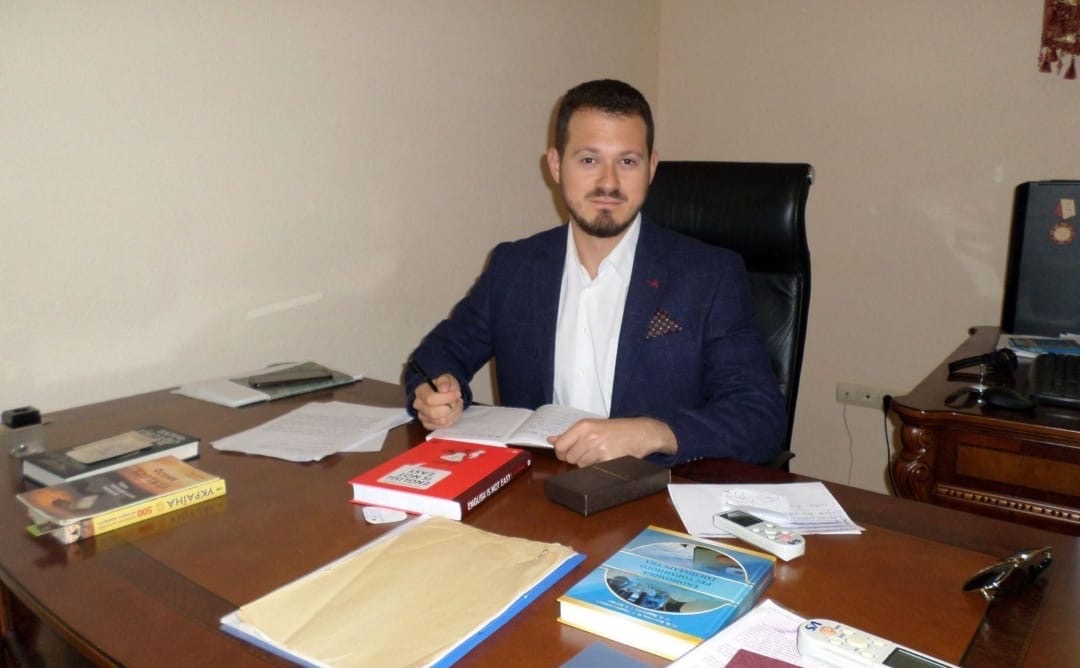This post is also available in: Bosnian
“As an ordinary Ukrainian, honestly, I feel frustration when I realize we have to treat Russian war criminals humanely and follow conventions. It is especially difficult when you see the atrocities they commit,” Senchenko says, adding that for many officials, the concept of transitional justice was initially unfamiliar.
“But we are building a lawful state, which sets us apart,” he emphasizes.
Nataliia Hendel, a transitional justice trainer, notes that Ukraine grapples with widespread distrust of its judiciary, stemming from corruption and weak legal institutions.
“This is a general distrust of the judicial system,” says Hendel, who often hears about judicial corruption during the training sessions.
“’How can we expect justice if, for example, there is corruption in Ukrainian courts?’… Legal nihilism is quite pervasive,” she says.
This distrust complicates efforts to implement justice during the de-occupation process. Hendel further highlights weak trust in the international justice system, including the United Nations, which many Ukrainians view as capable only of expressing concern and lacking true accountability mechanisms. This limits the effectiveness of international efforts to hold war criminals accountable.
 Nataliia Hendel. Photo: Detektor
Nataliia Hendel. Photo: Detektor
The Russian occupation often forces people to make a difficult choice: stay in their homes under occupation or leave everything behind and evacuate. Many who were unable to leave have no choice but to engage or even cooperate with the occupying authorities to survive. In such circumstances, transitional justice becomes a key mechanism for fairly addressing accountability, supporting victims, and restoring public trust.
As Nataliia Hendel emphasizes: “The mechanisms of this justice aim for fairness, compensation for damages, the right to truth, and guarantees of non-repetition, which are especially important in the Ukrainian context.”
These principles of justice are crucial in building a safe and democratic society.
The training program for Ukrainian civil servants aims to equip them with the skills and knowledge necessary to uphold justice, reintegrate affected individuals, and ensure rights are respected in de-occupied regions. Yuliia Lykhach, Director of the High School of Public Governance, explains that the program was developed in partnership with The Hague Academy of International Law and other European partners.
“The purpose of this training is to improve officials’ professional preparedness to implement transitional justice mechanisms in Ukraine,” says Lykhach.
The program has multiple levels, tailored to different civil service roles, and combines theoretical knowledge with practical skills. A significant portion of the course focuses on interactive exercises, such as analyzing international case studies and group projects that help participants understand how transitional justice is applied in real-world situations. For instance, one practical module addresses the documentation of crimes committed in occupied territories, which is essential for future court proceedings. Another module focuses on restoring public trust through transparent compensation processes and the memorialization of war events.
In the Balkans, transitional justice helped war-torn communities overcome consequences of the 1990s conflict. Many victims received compensation, and a significant number of war criminals were brought to justice by international tribunals and domestic courts.
Natalie Hendel and her colleagues analyze international contexts like the Balkans to understand how proven models can be adapted to Ukrainian realities. This approach enables program participants to identify tools for addressing similar issues in situations where victims’ rights must be prioritized and justice secured.
 Rescuers at the site of shelling in Kharkiv. Photo: EPA-EFE/GEORGE IVANCHENKO
Rescuers at the site of shelling in Kharkiv. Photo: EPA-EFE/GEORGE IVANCHENKO
Ukraine is already implementing certain elements of this framework, such as cooperating with the International Criminal Court and proposing the creation of a special tribunal to address Russian aggression. However, as Hendel points out, Ukraine’s case involves Russia, a permanent member of the UN Security Council, which complicates international justice processes.
This makes the transitional justice training program all the more critical for restoring justice in Ukraine. It not only improves the professional capacities of officials but also deepens their understanding of humanitarian law, the importance of victim-centered approaches, and the documentation of crimes committed by occupying forces. The program thus serves as both a mechanism for restoring justice and a practical tool for reintegrating victims into a peaceful society.
The training program also emphasizes working directly with victims. According to Hendel, special attention is paid to psychological support, rehabilitation, and ensuring fair compensation. This aspect of the work is both demanding and emotionally exhausting for program participants. Luckily, participant feedback shows that the training sessions not only equip them with new skills but also help them to overcome personal biases and psychological barriers.
Participants in the program confront myriad challenges, including the lack of a clear legal framework for implementing transitional justice in Ukraine. Yuliia Lykhach notes that many legal ambiguities remain unresolved, particularly regarding the actions of those who cooperated with occupying forces under duress or life-threatening circumstances. This is an especially complex issue, as it is essential to ensure that ordinary people forced into impossible choices are treated fairly, without excessive severity.
Positive feedback from participants underscores the impact of the program “All of the participants confirmed that the training was useful and practically oriented,” Lykhach shares.
The program also covers topics such as infrastructure restoration and support for internally displaced persons. Volodymyr Senchenko says that during training, participants discussed the importance of integrating principles of humanitarian law into critical infrastructure restoration efforts.
“De-occupation plans should include not only infrastructure restoration but also working with victims and counteracting collaborationist activities,” Senchenko notes.
 Volodymyr Senchenko. Photo: Detektor
Volodymyr Senchenko. Photo: Detektor
For many civil servants, the training has been a new and beneficial experience. Senchenko himself gained new insights into humanitarian law and crime documentation processes. He points out that thanks to the training, communities emerging from temporary occupation are now better equipped for effective recovery in line with international justice standards.
Senchenko emphasized the importance of documenting evidence of crimes for future court proceedings. He noted that this knowledge has empowered local communities to record crimes, with the motivation of achieving justice for victims.
Transitional justice is also extremely important to restore public trust in Ukraine and rebuild society after the war.
“Transitional justice for Ukraine is not only an opportunity to overcome today’s challenges but also a chance to create a strong legal foundation for the future, in which every citizen will feel protected,” emphasizes Hendel.
As Ukrainian society endures the trials of war, the demand for justice and the restoration of order is increasing. Transitional justice plays a key role, not only by holding the guilty accountable but also by recognizing the suffering of victims, restoring their dignity, and preserving historical truth. These mechanisms will help provide a strong foundation for reconciliation in post-war Ukraine.

